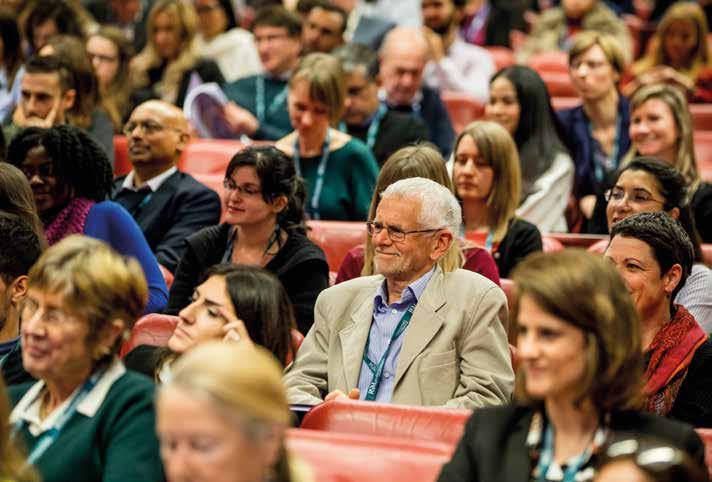
2 minute read
Conference overview: Optimal diet and lifestyle strategies for the management of cardio-metabolic risk

The Nutrition Society’s Winter Conference on 4 and 5 December in association with the Royal Society of Medicine (RSM), examined the very topical subject of diet and lifestyle strategies for the management of cardio-metabolic risk. The topic was of significant interest to healthcare professionals given that metabolic risk factors increase the risk of developing cardiovascular disease, a condition that remains the leading cause of death globally.
Advertisement
Four symposia examined the impact of both individual nutrients and wider dietary patterns on cardio-metabolic risk and prevention over the course of the two days, with lively panel debate and audience questions following each symposium. Day one examined the impact of dietary fatty acids on cardiometabolic diseases and key metabolic tissues, with day two focussing on dietary sugars, resistant starch and fibres. The conference finished by considering lifestyle factors and their role in prevention, with Dr Alison Tedstone bringing the conference to a close with an overview of the UK’s current dietary policies aiming to improve metabolic health at a population level.
The two excellent keynote speakers provided engaging talks and plenty of
“I was thrilled to have the opportunity to present some of the findings of our HEAL-D study, especially amongst such a distinguished field of nutritional scientists. The whole conference was really informative, and presenting our work gave me the opportunity to meet and talk to lots of delegates I may not otherwise have had the chance to meet.”
Amanda
food for thought, taking a broader view of the role of diet and body weight in cardio-metabolic risk. Dr Jean-Pierre Després from Université Laval gave the first plenary, and urged delegates to become ‘waist watchers’ rather than ‘weight watchers’, recommending clinical practitioners use waist circumference to aid identification of overweight and obese individuals with the highest cardio-metabolic risk. The second
300 delegates from 15 different countries
“The overall event and exceptionally high quality of presentations more than fulfilled my expectations; to highlight the prevalence and clinical relevance of cardiometabolic risk, and impact of diet and lifestyle factors in reducing this risk.” keynote lecture by Professor Eric Rimm, Professor of Epidemiology and Nutrition at Harvard Medical School, was entitled ‘The optimal diet – so many pieces to that pie!” Highlighting the dangers of looking to individual nutrients – such as blueberry polyphenols – for reducing CVD risk, Professor Rimm advocated for a ‘Mediterranean-style’ dietary pattern adaptable to individual countries.
Over the course of the conference, 45 original communication sessions covered a diverse range of topics from vitamin D and non-alcoholic fatty liver disease, to results from the recent EPIC-Oxford study finding that vegetarian, pescatarian and vegan diets may have a protective effect against diabetes compared to meat-eaters.


Congratulations to Amanda Moore, King’s College London, for the best oral communication
Following the annual drinks reception at the Royal Society the proceeding evening, the first day of the conference closed with an informal evening drinks reception in the festive RSM atrium. Food stations were themed around dietary patterns linked to the management of cardiometabolic risk, with the Nordic Diet station (serving salmon and barley) and the Mediterranean diet station (tomato peperonata) proving particularly popular.
Invited speaker reviews and Original Communications will all be published in Proceedings of the Nutrition Society. Log into the members area for full access.





